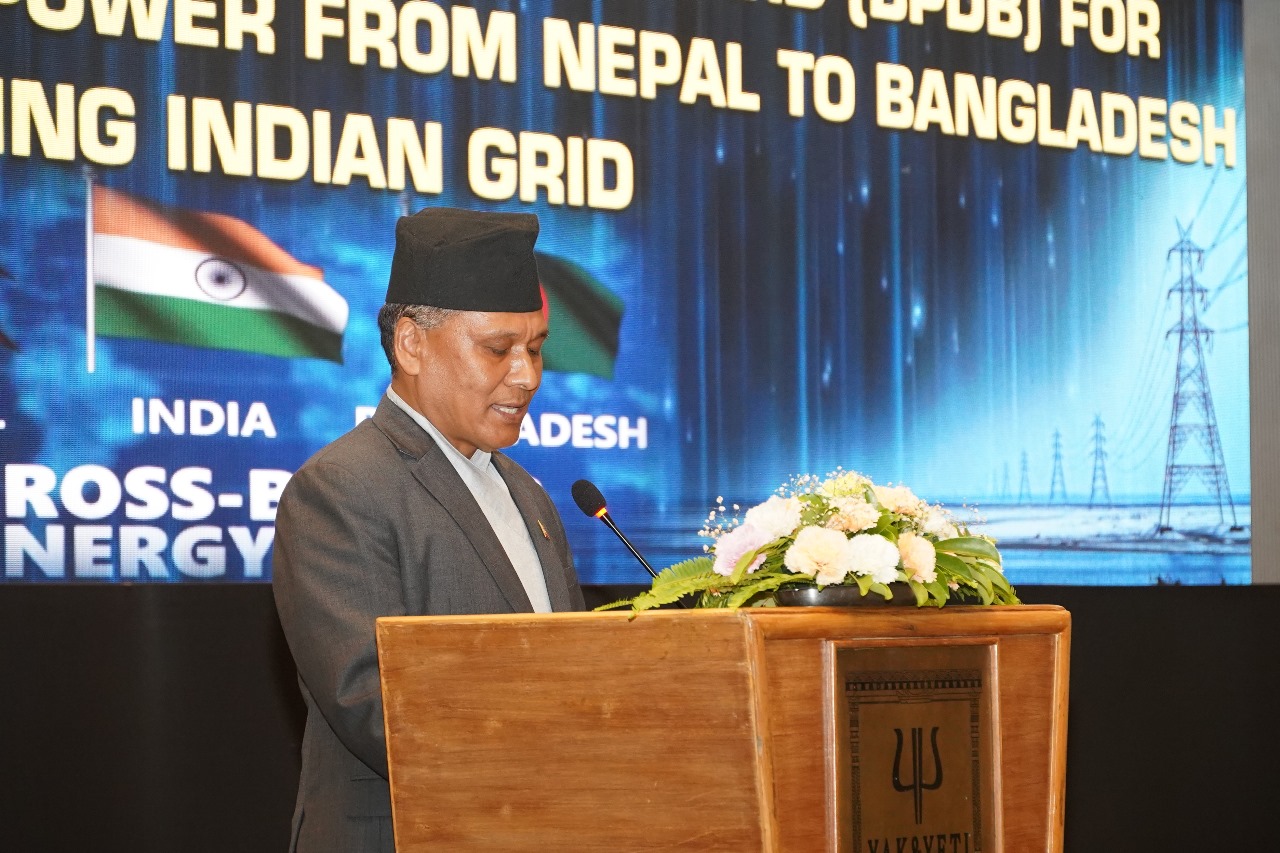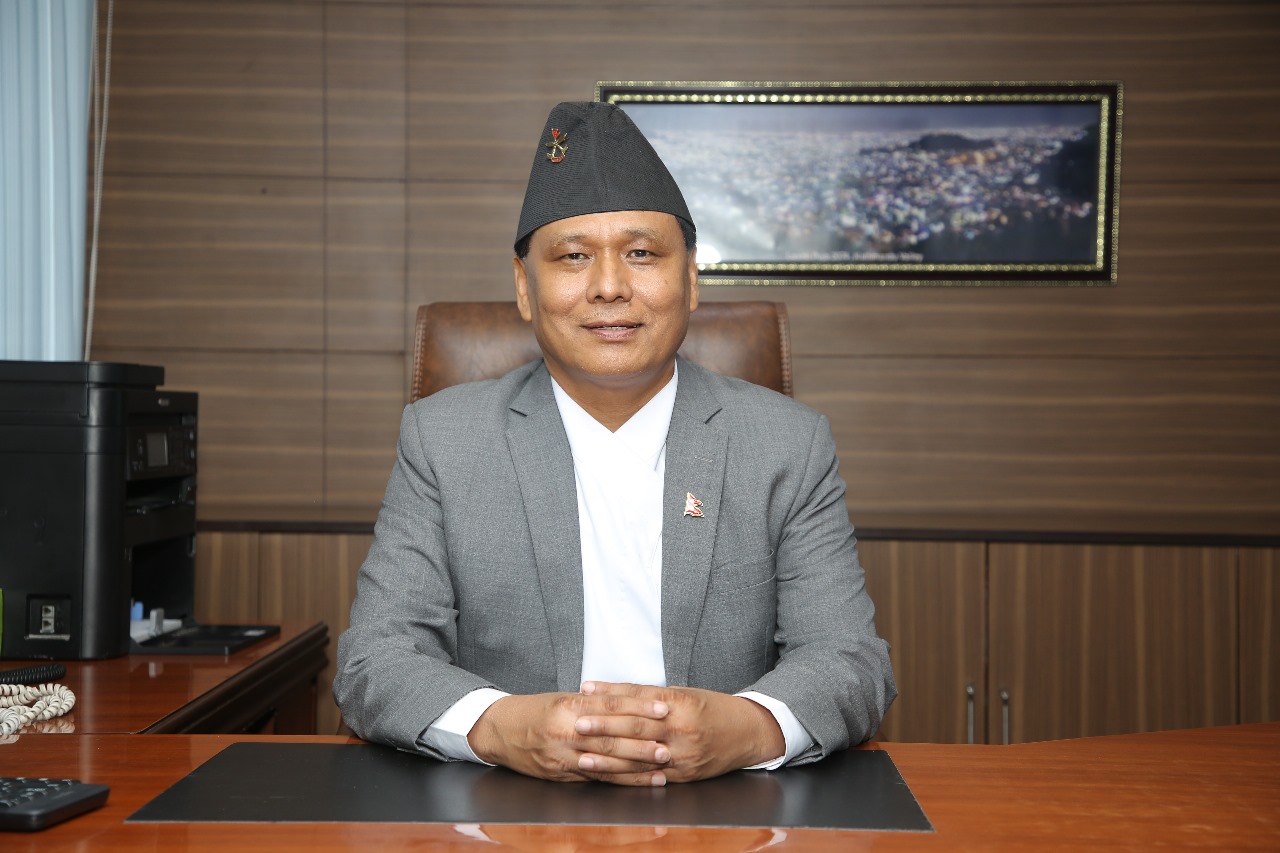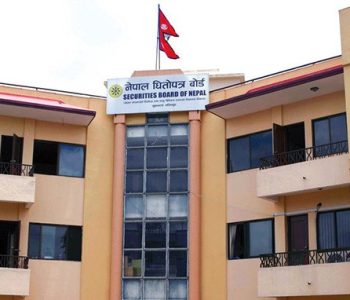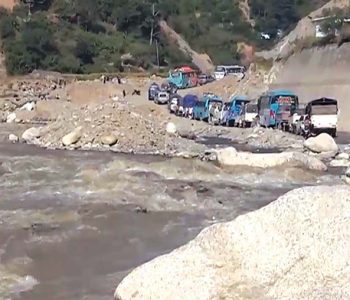Kul Man Ghising’s vision for South Asian energy cooperation: A landmark agreement and future prospects

KATHMANDU: On Thursday, Nepal, India, and Bangladesh signed a landmark tripartite agreement on energy cooperation in a program held in Kathmandu. Nepal Electricity Authority (NEA) Managing Director Kul Man Ghising shared his vision for advancing South Asian energy cooperation during the ceremony. He emphasized the significance of the agreement in expanding power trade within the region, marking a transition from bilateral to trilateral energy collaboration. Ghising highlighted the agreement’s role in strengthening regional energy security, promoting economic growth, and supporting environmental sustainability.
Here is the revised version of his speech delivered at the event:
A Milestone in South Asian Power Trade
In a historic moment for regional energy cooperation, Kul Man Ghising, the Managing Director of the Nepal Electricity Authority (NEA), addressed a high-profile gathering at the signing ceremony of the Tripartite Power Sales Agreement among NEA, NTPC Vidyut Vyapar Nigam (NVVN), and the Bangladesh Power Development Board (BPDB). The event, held in the presence of distinguished ministers, secretaries, and delegates from Nepal, India, and Bangladesh, marked a major milestone in cross-border energy trade.
Ghising expressed immense pride in witnessing this momentous occasion, emphasizing the agreement’s significance as a cornerstone of trilateral power trading, which builds upon years of bilateral cooperation. He warmly welcomed the dignitaries and underscored their pivotal roles in advancing the shared mission of fostering energy collaboration within the South Asian region.
The Importance of Regional Cooperation
Ghising highlighted that the presence of key figures from the three countries underscored their collective commitment to promoting energy cooperation, which is crucial for the economic growth and energy security of South Asia. He stated, “Today marks a significant milestone in our journey towards power trading within the South Asian region. This agreement, which facilitates the sale of 40 MW of power from Nepal to Bangladesh through the Indian Grid, represents more than just a contractual arrangement; it is the culmination of our collaborative efforts, shared vision, and unwavering determination.”
This tripartite agreement moves Nepal’s energy export from a bilateral to a trilateral framework, opening avenues for broader sub-regional and regional cooperation. Ghising described this shift as a game-changer, enabling a more integrated and cohesive South Asian energy market, with Nepal, India, and Bangladesh working together to address shared energy needs.
Key Details of the Agreement
The Tripartite Power Sales Agreement sets the stage for Nepal to export 40 MW of power annually from June 15 to November 15 over the next five years. NEA will deliver power to the Muzaffarpur substation in India at a rate of 6.40 US cents per unit, and from there, BPDB will draw the power from the Bheramara substation in Bangladesh. This will be facilitated through the Baharampur-Bheramara HVDC Cross-Border Link, and NVVN will act as the trader, ensuring smooth scheduling, dispatch, and energy accounting.
Under the agreement, BPDB will cover all transmission charges and losses from the Muzaffarpur substation to the Bheramara substation. In total, 144 million units of electricity will be sold to Bangladesh each year, generating an estimated annual revenue of USD 9.22 million for Nepal. Ghising emphasized that the agreement not only strengthens Nepal’s position as a power exporter but also sets a precedent for future trilateral energy deals within the region.
Expanding Nepal’s Role in the Regional Energy Market
Ghising proudly noted that Nepal has been trading power in the Indian Energy Exchange (IEX) market since 2021, exporting around 900 MW to India through various market segments, including bilateral agreements and day-ahead trading. With the signing of this agreement, Nepal becomes the first country in South Asia to export electricity beyond its borders to a third country. This is a critical step in realizing Nepal’s ambition to become a regional energy hub.
Looking ahead, Ghising outlined Nepal’s ambitious plans to expand its power generation capacity to 28,500 MW by 2035. The country aims to sell up to 10,000 MW to India and 5,000 MW to Bangladesh over the next decade. This massive increase in capacity will not only cater to domestic demand but also position Nepal as a major player in the regional energy market.

Harnessing Nepal’s Hydropower Potential
Nepal’s abundant hydropower resources offer immense potential for energy trade within South Asia, and Ghising highlighted the country’s unique geographical advantage. “Our geographical proximity provides us with a unique opportunity to develop essential transmission infrastructure and enhance our interconnections,” he said. By establishing high-voltage interconnections between Nepal, India, and Bangladesh, the region can facilitate increased power flows, leading to a more integrated energy market.
Ghising stressed that Nepal’s hydropower potential goes beyond energy production. Reservoir-based hydropower projects can offer additional benefits such as flood control, irrigation, navigation, and tourism, particularly for downstream countries. The development of these projects, coupled with strong grid networks, will create a “win-win proposition” for all partner nations, he added.
Energy Security and Environmental Impact
In addition to the economic and infrastructural benefits, Ghising emphasized the environmental importance of regional energy cooperation. Nepal’s hydropower projects contribute to energy security in South Asia and play a crucial role in global efforts to reduce carbon emissions. The transition to clean, renewable energy not only addresses regional energy needs but also supports global climate goals.
Ghising stated, “Nepal’s abundant hydro potential not only supports energy security in this sub-region but also plays a crucial role in our global efforts to reduce carbon emissions. This historic milestone will not only strengthen people-to-people connections among our countries but also promote the sharing of diverse and complementary energy resources, leading to economic prosperity for all.”
Strengthening Regional Energy Cooperation
Ghising concluded his speech by calling for continued collaboration and trust-building among the partner countries. He emphasized the importance of maintaining open dialogue to ensure the seamless flow of electricity across borders, which will pave the way for a more integrated sub-regional and regional energy market.
He extended his deepest gratitude to the visionary leaders, diplomats, and officials from Nepal, India, and Bangladesh who worked tirelessly to achieve this milestone in cross-border energy trade. He also acknowledged the critical role of NVVN and BPDB in making the tripartite agreement a reality, and expressed appreciation for the unwavering support of development partners who have contributed to the advancement of Nepal’s energy sector.
As Ghising closed his address, he reaffirmed NEA’s commitment to achieving energy security and fostering regional cooperation, stating, “Let us embrace this opportunity for collaboration as we move forward together towards a prosperous and sustainable future for South Asia.”
This landmark agreement is not just a success for NEA and its partners, but also a bold step toward realizing a shared vision of energy security, economic growth, and environmental sustainability for the entire South Asian region.













Facebook Comment